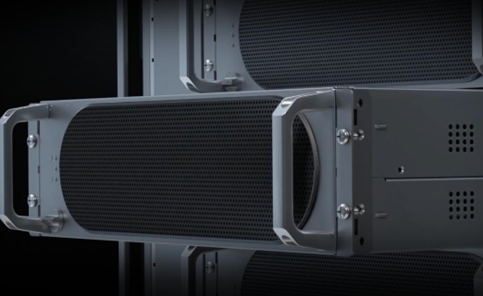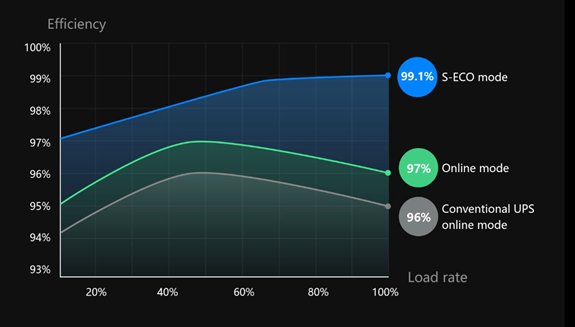What Is a Modular UPS and How Does It Benefit Data Centers?
Data centers require reliable power solutions to ensure uninterrupted operations. One significant advancement in power supply technology is the modular Uninterruptible Power Supply (UPS). This blog delves into what a modular UPS is, its operational mechanics, and the advantages it brings to data centers. By understanding these aspects, data center managers can make informed decisions about integrating modular UPS systems into their infrastructure, streamlining energy efficiency, and ensuring consistent uptime.
What Is a Modular UPS?
Before diving into its benefits, it’s essential to understand what a modular UPS is and how it differs from traditional systems.
Definition and Core Components
A modular UPS is an advanced power protection system designed to maintain electrical supply during disruptions. Unlike traditional UPS units, modular UPS systems comprise multiple smaller UPS modules. These modules work cohesively and can be added or removed based on power demands. The key components include power modules, control units, and battery packs, all configured within a unified framework to ensure continuous energy flow.

How Modular UPS Differs from Traditional UPS Systems
Traditional UPS systems often involve standalone units that cater to fixed power capacities. They typically require complete replacement or extensive modifications to handle increased power needs. In contrast, modular UPS offers flexibility; adding or upgrading modules without overhauling the entire system. This modular design enables scalability, easy maintenance, and redundancy, significantly minimizing potential downtime and enhancing power reliability.
How Does a Modular UPS Work?
Understanding how a modular UPS operates is key to appreciating its benefits for data centers.
Scalability: Adapting to Power Needs
Modular UPS systems excel in scalability. As data center power demands grow, additional modules are seamlessly integrated into the existing system. This scalability ensures that the power infrastructure can expand in tandem with the data center’s needs, providing a customized, efficient power solution.
Redundancy: Ensuring Uninterrupted Power
Redundancy is a critical feature of modular UPS. The system’s design allows multiple modules to share the load, so if one module fails, others compensate, maintaining uninterrupted power. This redundancy is crucial for data centers, ensuring no single point of failure can disrupt operations.
Hot-Swappable Modules: Maintenance Without Downtime
Maintenance and upgrades often require shutting down systems, risking downtime. However, with modular UPS, hot-swappable modules facilitate maintenance without interrupting the power supply. Technicians can replace or upgrade individual modules, ensuring continuous operation and minimizing risks associated with system maintenance.
Key Benefits of Modular UPS for Data Centers
Modular UPS systems offer a range of advantages that make them indispensable for modern data centers.
Enhanced Energy Efficiency
Modular UPS systems offer superior energy efficiency compared to traditional solutions. By optimizing load-sharing across multiple modules, they reduce energy wastage and improve overall power usage effectiveness (PUE). This efficiency translates to significant savings in operational costs and a greener data center footprint.

Cost-Effectiveness and Reduced TCO
The modular approach results in better cost management. Initial investments can be smaller, and scaling up is cost-effective as you only add modules as needed. Over time, lower energy consumption, reduced maintenance costs, and minimized downtime contribute to a lower total cost of ownership (TCO).
Simplified Maintenance and Upgrades
Modular UPS systems streamline maintenance with hot-swappable modules, enabling easy replacements and upgrades without downtime. Technicians can swiftly resolve issues, conduct routine checks, and enhance components, boosting system reliability and lifespan. This design ensures uninterrupted operations and reduces maintenance costs, making it ideal for businesses prioritizing efficiency and uptime.
Future-Proofing Data Center Infrastructure
As technology evolves, data centers must adapt swiftly. Modular UPS systems provide the flexibility to incorporate new advancements. Future-proofing your infrastructure this way ensures that the data center remains up-to-date with minimal disruption, adapting to changing power needs and technological advancements without significant overhauls.
Real-World Applications of Modular UPS
Modular UPS systems are revolutionizing power management across industries. Large-scale data centers rely on them for enhanced reliability and energy efficiency. Telecommunications companies use modular UPS to ensure uninterrupted services, while healthcare systems depend on them to keep critical equipment running during outages. Industries that prioritize 24/7 operations, such as finance and manufacturing, find modular UPS indispensable for maintaining service quality, reliability, and operational continuity.
Conclusion
Modular UPS systems represent a significant evolution in power management for data centers. Their scalability, redundancy, and ease of maintenance make them an invaluable asset for ensuring uninterrupted operations and energy efficiency. By adopting modular UPS, data centers can future-proof their infrastructure, manage costs effectively, and maintain a robust and reliable power supply to meet evolving demands. Embracing this technology is a forward-thinking step for data centers aiming for operational excellence and sustainability.
